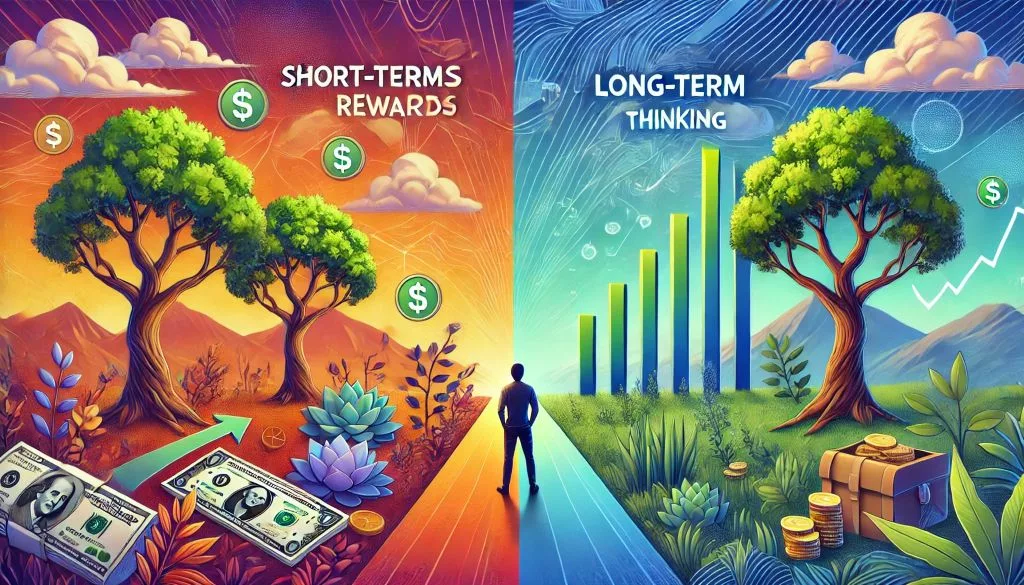In life, we often face choices between short term and long term, especially in terms of investment, work, and personal development. Let’s explore the differences between the two and how they impact our lives!
1. Concepts of Short Term vs Long Term
- Short Term: Typically refers to time frames between days to months. Examples include spontaneous shopping or a short trip.
- Long Term: Refers to plans that stretch over a year or more, such as studying for a certification or buying a house which require time to bear fruit.
2. Advantages and Disadvantages of Short Term
Pros:
- Quick Wins: Short term goals are easier to achieve, providing instant gratification that motivates further efforts.
- Flexibility: Short-term planning allows adjustments based on market trends or personal interests, such as discovering new hobbies.
Cons:
- High Risk: Many short term actions are vulnerable to market fluctuations, like short-term investments.
- Lack of Depth: Short term goals often lack comprehensive considerations, potentially missing bigger development opportunities.
3. Advantages and Disadvantages of Long Term
Pros:
- Stability: Long term goals provide a clear direction for planning one’s life journey.
- Cumulative Effect: Long-term efforts yield compound benefits, enhancing certain advantages over time.
Cons:
- High Time Cost: Long term goals require persistence, which could lead to disappointment or fatigue.
- Risk of Disruption: Unexpected events can arise at any time, potentially derailing our original plans.
4. Personal Experience: How I Balance Short Term and Long Term?
- Multiple Planning: When setting goals, I establish both short term and long term objectives; short term goals boost motivation while long term goals illuminate my future path.
- Regular Review: I periodically check on my goal progress. If I find an excess of short term goals, it may indicate the need for adjustment.
- Continuous Learning: I actively participate in courses and social activities, fulfilling both short term social needs and building networks and knowledge for long-term growth.
5. Conclusion: Choice is Your Right, Balance is Your Wisdom!
Short term and long term are not mutually exclusive; they can actually complement each other. Finding your balance can make your life more exciting. The ultimate result depends on both choosing wisely and dedicating your efforts.
